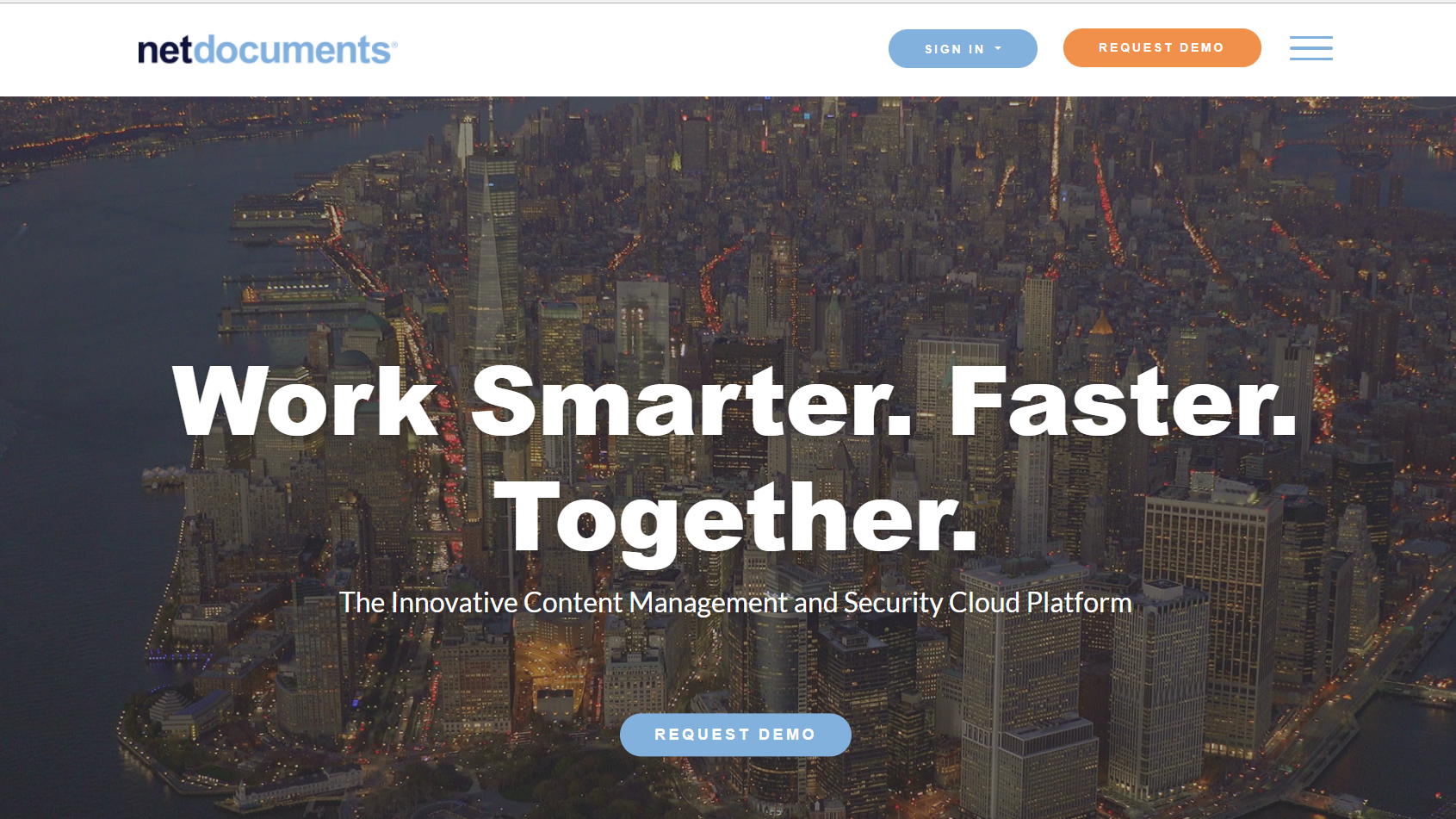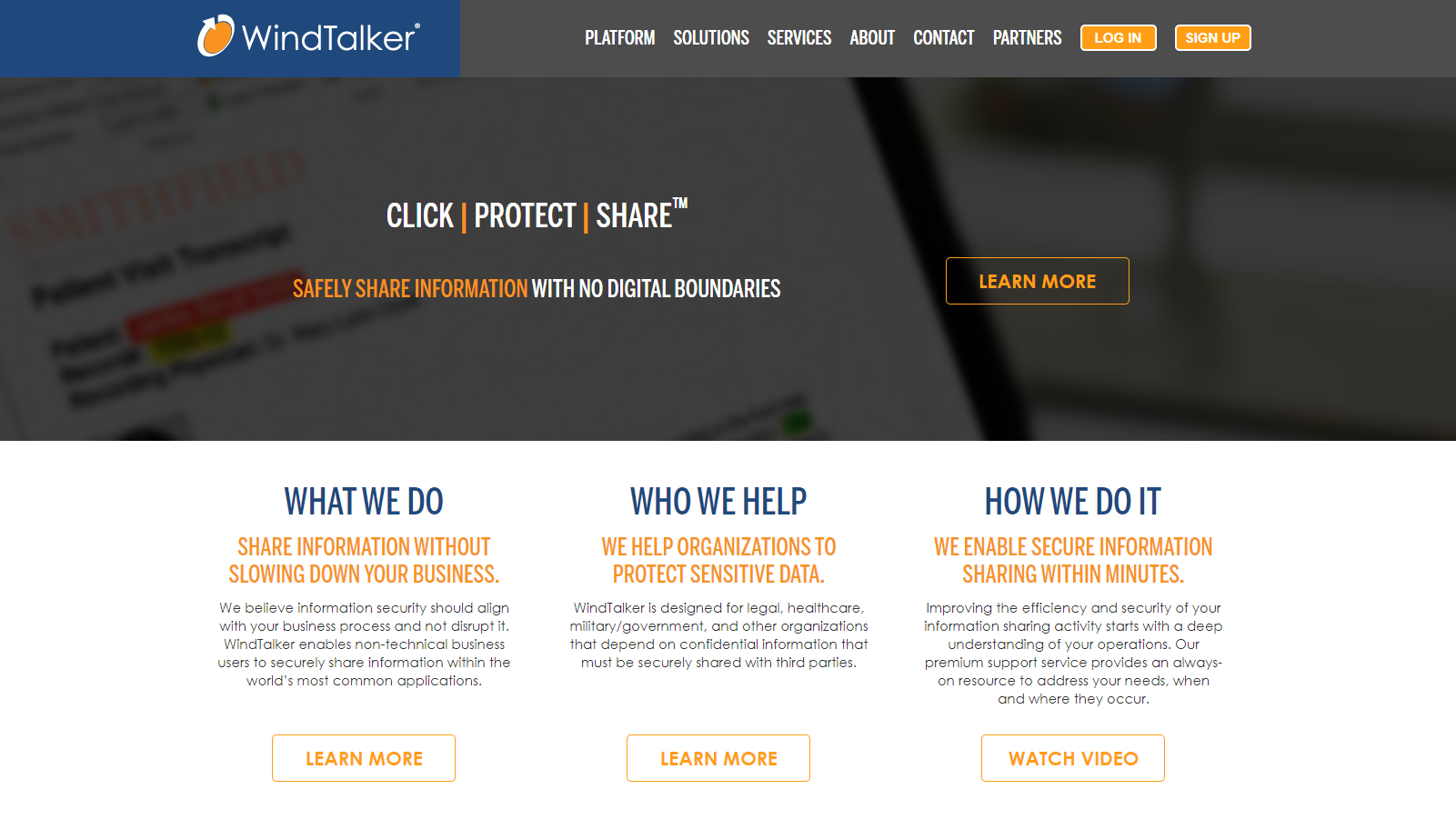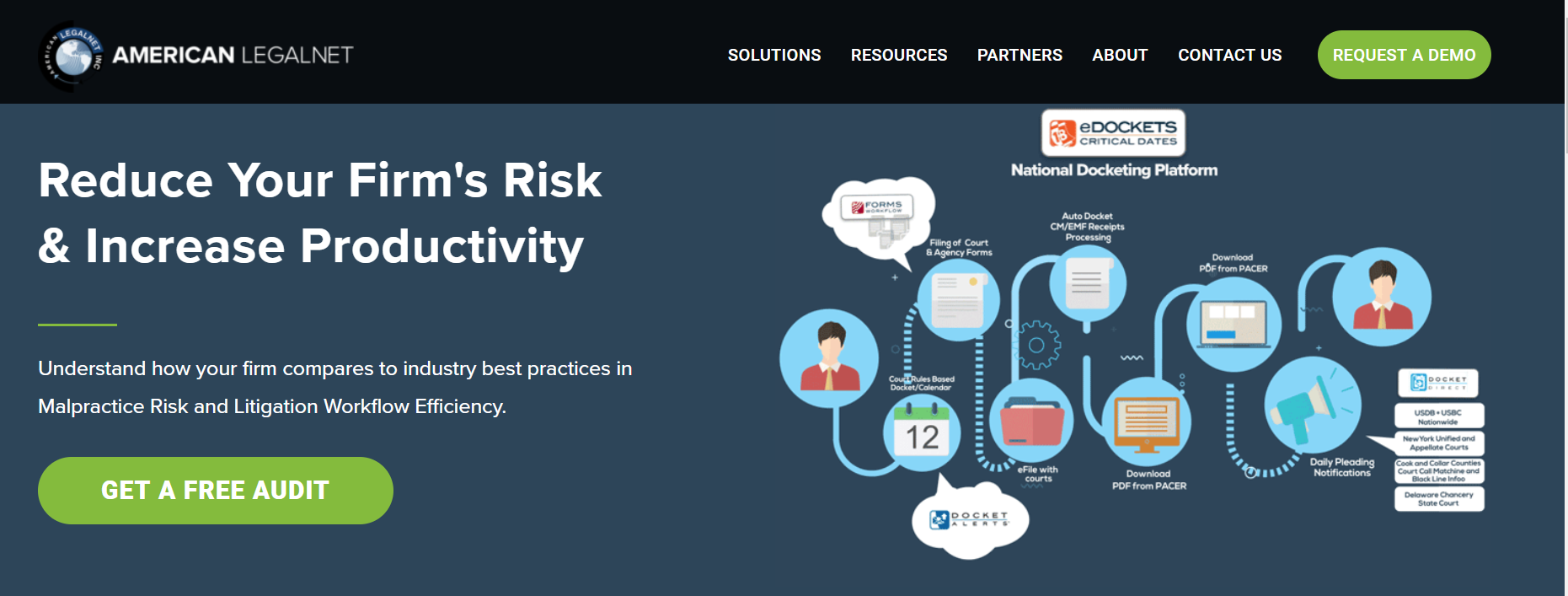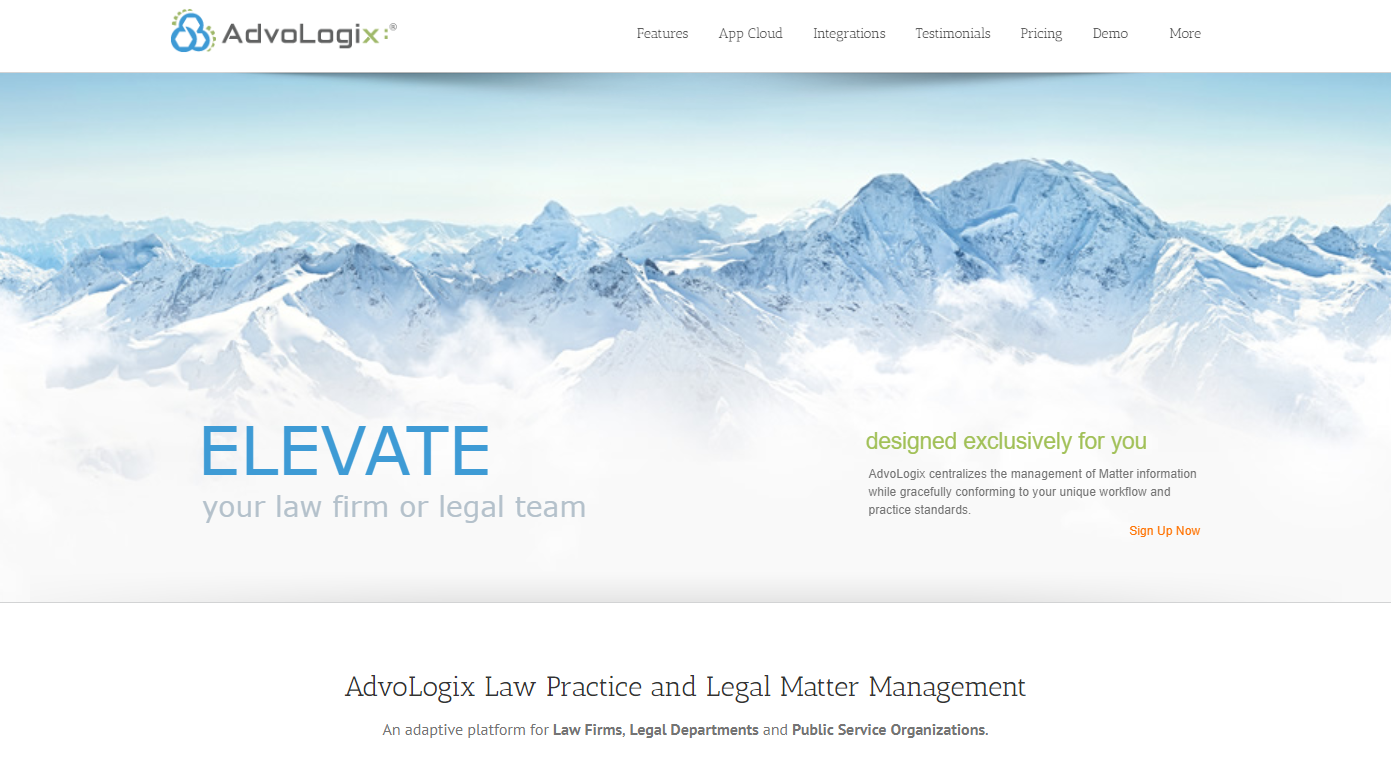Last week, I attended ILTACON, the annual meeting of the International Legal Technology Association, where I sat down with a number of legal technology companies for briefings on their latest news and products. I’m posting a four-part roundup of those companies. I started Monday with Part 1 and yesterday with Part 2. Here is Part 3.
If you are still afraid of the cloud, don’t be.
That, in so many words, is the message being delivered this year by NetDocuments, the cloud-based document and email management platform. At ILTACON, I met with Marriott Murdock, head of global product marketing, and Bradlee Duncan, senior product manager, who said that the company’s messaging this year is emphasizing three value points:
- Safe, meaning all the security, data protection, governance, infrastructure, encryption, policies and other protections that NetDocuments incorporates to protect client data.
- Proven, meaning that the company, now 20 years old, has withstood the test of time and is now the custodian of some 10 billion files. While other companies are now trying to play catch up with the cloud, Murdock said, “It’s our DNA.” Putting its money where its mouth is, so to speak, NetDocuments recently launched global trust pages to provide real-time transparency on service health and performance. “We’ve pulled back the curtains on what’s going on,” Murdock said.
- Ready, meaning that NetDocuments is a global platform that is ready for the end user to work from anywhere and using any of a variety of tools.
The company is maintaining a growth rate of 40 percent or more, Murdock said, adding at least a firm a day (including some in other verticals). Its customers include 20 of the AmLaw 100, and 10 firms this year moved from iManage to NetDocuments, he said. “Ten years ago, we were the underdog. Now it’s a two-horse race.”
As I reported last month, NetDocuments went through a leadership change, naming a new CEO, Josh Baxter, who had been president and COO since joining the company last year, so that Matt Duncan, who had been CEO since 2014, could step into a role that would allow him time to care for his father, NetDocument cofounder Ken Duncan, who is battling late-stage Parkinson’s disease.
On the day before ILTACON, at an event sponsored by the Global Legal Blockchain Consortium, NetDocuments demonstrated a proof of concept for email attachment encryption using the blockchain to publish the email identity and public key. I was not at the event, but Peter Buck, VP, product strategy at NetDocuments, told me in an email that the tool, while still in early development, is “super simple and pretty elegant.”
Also at ILTACON, NetDocuments was demonstrating ndThread, a social collaboration and matter-based messaging tool built within the NetDocuments platform, which it released in May. The product is based on the ThreadKM collaborative messaging technology that NetDocuments acquired last November.
Making its debut at ILTACON with a document-security product unlike anything I’ve seen was WindTalker, a company that has an interesting and unique take on providing security for privileged, confidential or sensitive content. At the conference, I spoke with its founder and CEO, Christopher Combs, who explained that the key difference between his product and others is that, while others secure the container — in other words, the entire file –his secures the content, natively.
What that means is that the product allows a user to protect a document granularly — by the paragraph, by the line, or even by the word. Protected content is encrypted, not redacted, and others are allowed or denied access based on rights-based permissions. Its encryption can be applied to both Microsoft Word and Adobe Acrobat documents, and it follows the documents, so that if one recipient forwards it, the permissions still apply. A single document can contain multiple sets of permissions.
A document can be granularly encrypted with different sets of permissions for different types of users. Some sections might be viewable by members of the legal team, while different sections might be viewable only by a CEO. These permissions can be turned on or off remotely and WindTalker automatically logs events for auditing purposes and supports creation of privilege logs.
Introduced at ILTACON, the product will officially launch within the next month or two.
Given that it has been in business since 1996 and released its first product in 2001, it was surprising that I had never before met with American LegalNet. At ILTACON, I had the opportunity to sit down with its founder and CEO, Erez Bustan.
The company’s product is an end-to-end application for managing litigation dockets, deadlines and documents. One platform includes docketing and calendaring, court rules for all federal and state courts, PACER/ECF automation that automatically downloads and stores the free “first-look” documents, a collection of over 100,000 court and agency forms, and court data feeds for calendar entries and court appearances.
It ILTACON, its major news announcement was a new alliance partnership with Thomson Reuters Elite that will allow American LegalNet’s product to be available to customers of the Elite products 3E and Enterprise.
Bustan described his company as being in the risk management business. Noting that 40 percent of malpractice lawsuits result from calendaring mistakes and missed deadlines, he said that American LegalNet has developed a complete workflow that takes law firms away from risk and that increases their efficiency around the management of litigation documents.
Right now, most of the company’s customers are top-500 firms, Bustan said, including a number of prominent large firms. However, it is working on the release of a cloud product that will allow it to sell to smaller firms.
AdvoLogix is a cloud-based, enterprise-level law practice and legal matter management platform for law firms and corporate legal departments. At ILTACON, I met with Steve Stockstill, vice president, product development, who told me that what makes AdvoLogix unique is that it is built on the Salesforce.com cloud architecture. “Our customers are using the same Salesforce cloud that Salesforce uses,” he said.
That means that customers can buy AdvoLogix in either of two configurations — as a standalone or as an addition to an existing Salesforce application. The latter is often how corporate legal departments deploy AdvoLogix, since they are likely to be already using Salesforce within their organizations.
Because it operates on the Salesforce platform, AdvoLogix also integrates with a wide range of other applications that work within Salesforce — more than 3,000, it says. These include applications such as DocuSign, HotDocs, Worldox, NetDocuments, Contract Express, Box, and many others.
At ILTACON, AdvoLogix was highlighting its summer product release, with a number of new features and enhancements related to client intake, matter timelines, conflict checking, billing and timekeeping, calendaring and scheduling, document management, document assembly, and more.
 Robert Ambrogi Blog
Robert Ambrogi Blog


